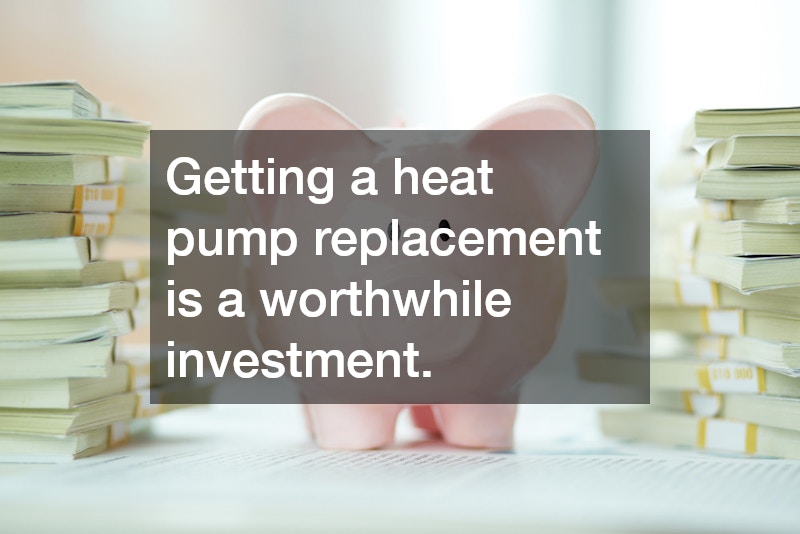As homeowners become more conscious of energy efficiency, many are opting for heat pump replacement to keep their homes comfortable in both warm and cold weather. Heat pumps are a sustainable alternative compared to traditional HVAC systems, providing both heating and cooling functionalities. This article will delve into what you can expect during the heat pump replacement process, including the benefits, costs, and maintenance requirements.
When to Consider Heat Pump Replacement
Heat pump technology has significantly evolved over the years, offering enhanced performance and efficiency. If your existing system is over a decade old, it’s likely operating below optimal efficiency, increasing your energy bills.
Upgrading to a modern heat pump can reduce operating costs and improve the overall comfort of your home.
One of the primary reasons homeowners consider heat pump replacement is the potential for reduced greenhouse gas emissions. Newer models come with environmentally friendly refrigerants that contribute less to global warming. By investing in an updated system, you’re not only improving your home’s energy efficiency but also contributing to a more sustainable planet.
Additionally, modern heat pumps are often quieter and offer more precise climate control than older models. These advancements mean you can enjoy a more consistent indoor temperature with less noise disruption. A new heat pump can also provide peace of mind with its enhanced reliability and warranties that weren’t available with older models.
What to Know About the Replacement Process
The process of replacing a heat pump can vary depending on the complexity of the installation and the existing infrastructure. Initially, a professional HVAC technician will assess your home’s current system to determine compatibility with the new unit. This is crucial to ensure the new heat pump is correctly sized and positioned for maximum efficiency.
Once the assessment is complete, the removal of the old unit is the next step. Technicians will carefully dismantle the old heat pump to ensure that no components are damaged and harmful refrigerants are safely disposed of. Proper removal is essential to prevent potential environmental hazards and to prepare the space for the new system.
Installation of the new heat pump involves connecting electrical systems, calibrating thermostats, and performing safety checks. The technician will verify that the new unit operates correctly and efficiently, ensuring it integrates seamlessly with your home’s existing systems. This process requires technical expertise and ensures that the heat pump replacement delivers optimal performance.
How to Plan Cost Considerations
The cost of heat pump replacement may vary significantly based on several factors, including brand, size, and installation complexities. On average, homeowners can expect to invest anywhere from $3,000 to $10,000 for a completely new system. It’s important to get multiple estimates to find the best option that suits both your budget and your home’s needs.
While the initial investment can be substantial, the long-term savings on energy bills often justify the expenditure. A modern heat pump can be up to 300% more efficient than traditional HVAC systems, translating into noticeable savings over time. Additionally, many utility companies offer rebates and tax incentives to make heat pump replacement more affordable.
Financing options are often available through HVAC companies, allowing homeowners to spread the cost over time. This can alleviate the financial burden, making it easier to transition to a more sustainable heating and cooling solution. Before committing, it’s wise to read the fine print and understand the terms of any financing agreements.
What to Expect for Maintenance Requirements
Proper maintenance is key to ensuring your new heat pump operates effectively and has a long lifespan. Regular filter changes, typically every one to three months, are essential to keep the system running efficiently and improve indoor air quality. Scheduling annual maintenance checks with a professional can help identify and address any minor issues before they become major problems.
Inspecting the outdoor unit is another vital part of maintenance as debris can obstruct airflow. Ensuring the unit is clean and free from obstructions can prevent unnecessary strain on the system, extending its operational life. Moreover, keeping the area around the unit clear can enhance its efficiency in transferring heat.
Getting a heat pump replacement is a worthwhile investment for those seeking energy efficiency and enhanced home comfort. From understanding the process to considering costs and maintenance, it’s important to be informed each step of the way. By choosing the right heat pump and ensuring regular upkeep, you can enjoy a sustainable system that meets your heating and cooling needs for years to come.
.


